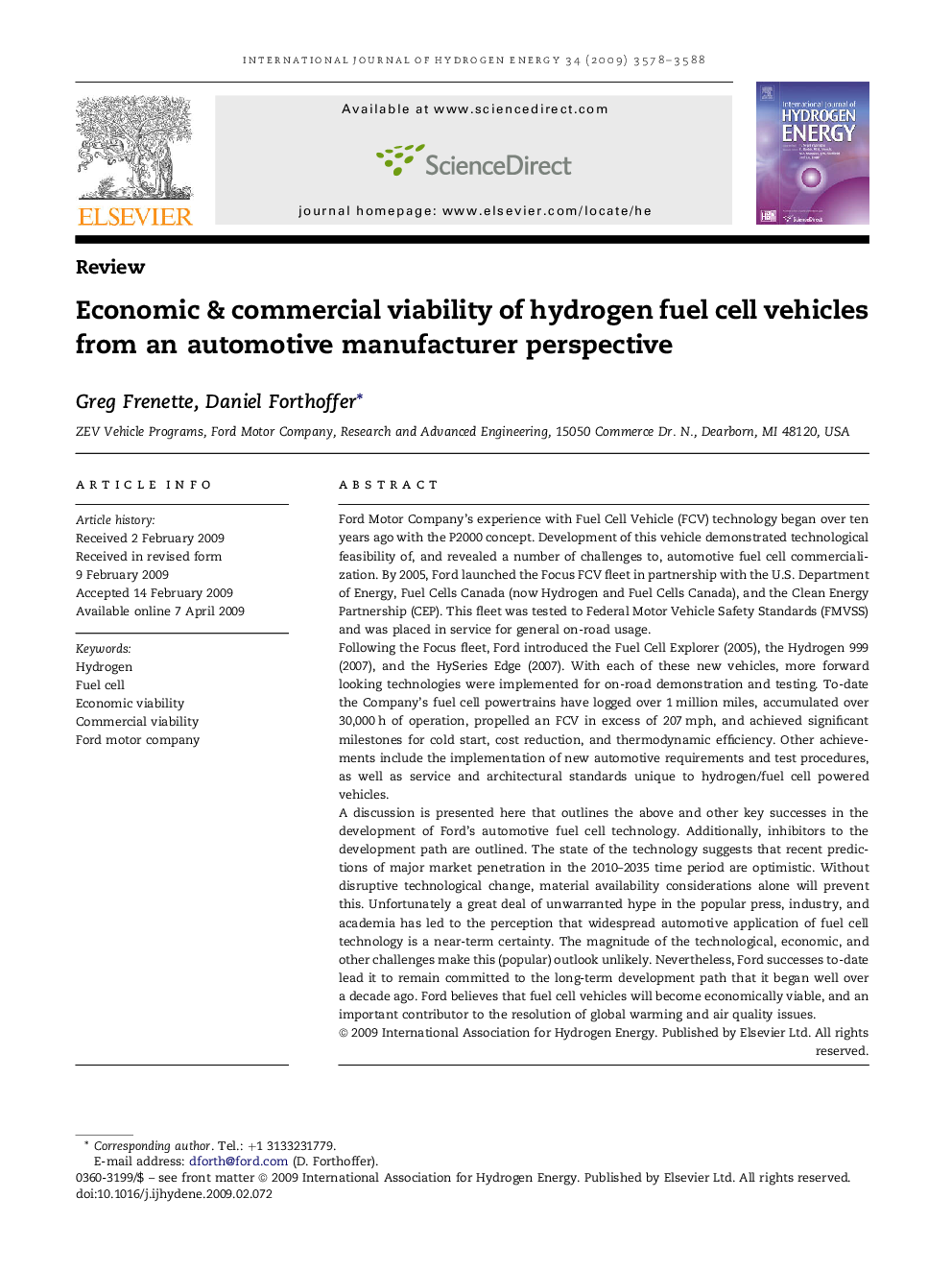| Article ID | Journal | Published Year | Pages | File Type |
|---|---|---|---|---|
| 1278987 | International Journal of Hydrogen Energy | 2009 | 11 Pages |
Ford Motor Company's experience with Fuel Cell Vehicle (FCV) technology began over ten years ago with the P2000 concept. Development of this vehicle demonstrated technological feasibility of, and revealed a number of challenges to, automotive fuel cell commercialization. By 2005, Ford launched the Focus FCV fleet in partnership with the U.S. Department of Energy, Fuel Cells Canada (now Hydrogen and Fuel Cells Canada), and the Clean Energy Partnership (CEP). This fleet was tested to Federal Motor Vehicle Safety Standards (FMVSS) and was placed in service for general on-road usage.Following the Focus fleet, Ford introduced the Fuel Cell Explorer (2005), the Hydrogen 999 (2007), and the HySeries Edge (2007). With each of these new vehicles, more forward looking technologies were implemented for on-road demonstration and testing. To-date the Company's fuel cell powertrains have logged over 1 million miles, accumulated over 30,000 h of operation, propelled an FCV in excess of 207 mph, and achieved significant milestones for cold start, cost reduction, and thermodynamic efficiency. Other achievements include the implementation of new automotive requirements and test procedures, as well as service and architectural standards unique to hydrogen/fuel cell powered vehicles.A discussion is presented here that outlines the above and other key successes in the development of Ford's automotive fuel cell technology. Additionally, inhibitors to the development path are outlined. The state of the technology suggests that recent predictions of major market penetration in the 2010–2035 time period are optimistic. Without disruptive technological change, material availability considerations alone will prevent this. Unfortunately a great deal of unwarranted hype in the popular press, industry, and academia has led to the perception that widespread automotive application of fuel cell technology is a near-term certainty. The magnitude of the technological, economic, and other challenges make this (popular) outlook unlikely. Nevertheless, Ford successes to-date lead it to remain committed to the long-term development path that it began well over a decade ago. Ford believes that fuel cell vehicles will become economically viable, and an important contributor to the resolution of global warming and air quality issues.
